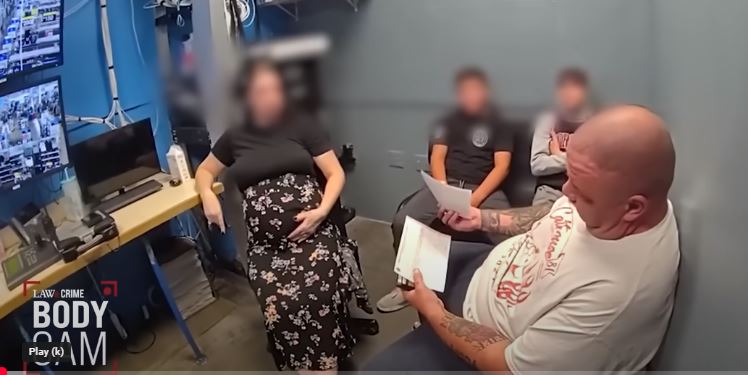Published Michigan Court of Appeals Opinion
Docket No(s) 362161
Lower Court Docket No(s) 2021-000966-FC
Hood, J.
“Crimes are supposed to be defined by the legislature, not by clever prosecutors riffing on equivocal language.”
[*1] “[C]rimes are supposed to be defined by the legislature, not by clever prosecutors riffing on equivocal language.” Dubin v United States, 599 US ___, ___; 143 S Ct 1557, 1572; ___ L Ed 2d ___ (2023) (quotation marks and citation omitted).
At issue here is the equivocal (subject to two or more interpretations and usually used to mislead or confuse) language of the reckless driving statute, MCL 257.626, which prohibits “operat[ing] a vehicle . . . in willful or wanton disregard for the safety of persons or property . . . .” MCL 257.626(2).
The traditional, narrow understanding and application of this statute is that it criminalizes driving in a reckless manner. The prosecution’s novel, expansive reading of this statute would also criminalize the decision to drive a vehicle that is not appropriately maintained due to the risk of potential mechanical failure.
Under this novel prosecution theory, a jury convicted defendant Timothy John Otto for reckless driving causing death, MCL 257.626(4).
The prosecution’s theory was that Otto failed to maintain the truck he was driving and that failure made him criminally liable under MCL 257.626(4)when the truck’s brakes failed while he was driving it, causing a wreck that resulted in a child’s death.
On appeal, Otto argues that he was denied effective assistance of counsel because his trial counsel failed to move to dismiss the reckless-driving charge when the facts of this case— failing to maintain a vehicle and then operating the poorly maintained vehicle—cannot support a [*2] conviction under MCL 257.626(4). 1
We agree. The text and context of MCL 257.626(4), and more broadly the Motor Vehicle Act, MCL 257.1 et seq., do not support the boundless interpretation underpinning the prosecution’s theory and Otto’s conviction.
We vacate his conviction. To hold otherwise would be to allow the prosecution—not the Legislature—to criminalize a wide array of commonplace conduct (such as failing to check your brakes, driving on old tires, and driving on empty) that the Legislature did not intend to outlaw.
FAQ
What is conviction vacated mean?
When a sentence is vacated: It legally annuls the conviction. Vacating a criminal sentence means removing that conviction from a person’s record. The record will then appear as if the person was never charged and convicted of a crime.
Why would a sentence be vacated?
Someone who has their conviction vacated are released from custody under certain conditions, such as a plea bargain being breached, proof of ineffective counsel, court bias, or another similar factor that might have impacted the outcome of the original trial.
Is vacating the same as dismissing?
‘Vacating’ or ‘setting aside’ is used when referring to nullifying a specific judgment from the judge (in this case, a guilty or ‘no contest’ judgment).
‘Dismissing’ applies to the entire case. It means that the case is thrown out for reasons other than its factual merits.
Does vacated mean innocent?
Winning the motion to vacate doesn’t mean that this is the end of the matter. The conviction or sentence is canceled as if it never existed, but the court doesn’t close your case. Instead, the prosecutor then decides whether to drop or pursue the original charges.
More Posts

When Can Police Take Your Dash Cam?
You work hard. Now get ready to work harder to prepare to give more.In Michigan, police can take your dashcam footage in specific situations, primarily when they believe it could serve as evidence in a criminal investigation. Michigan law permits officers to seize...

When Can Police Confiscate Your Drone in Michigan?
Someone asked us... Can the police take my drone?As we have seen ... They can charge, arrest you and take your stuff for whatever they want. You'll have to fight it out in court to get it back.In Michigan, the police can confiscate your drone under certain...

People who are going to need a Lawyer – November 12, 2024
People who are going to need a LawyerMan so drunk field sobriety tests were ‘too dangerous’ sentenced to life in prison for repeated DWI convictions‘Several terabytes’: Diddy prosecutors shed light on ‘voluminous’ discovery, including iCloud accounts and dozens of...

Cambridge Analytica data breach comes before court
Oral arguments in Facebook v. Amalgamated Bank will beginThe justices are set to review securities law as they hear arguments in a significant case linked to the 2015 data breach involving Cambridge Analytica and Facebook. The tech giant’s effort to fend off federal...

Search and Seizure – Consent or Plain view
The Fourth Amendment was established to protect individuals from unreasonable searches and seizures, yet there are exceptions.In Michigan, understanding the concepts of search and seizure, particularly regarding consent and plain view, is crucial for both law...

Using a computer to commit a crime – The latest add on charges
FRAUDULENT ACCESS TO COMPUTERS, COMPUTER SYSTEMS, AND COMPUTER NETWORKS (EXCERPT)Act 53 of 1979752.796 Use of computer program, computer, computer system, or computer network to commit crime. Sec. 6. (1) A person shall not use a computer program, computer,...

A drunk driving investigation, a car wreck and a blood draw
A Case Summary: People v. Blake Anthony-William BartonOn October 11, 2024, the Michigan Court of Appeals issued a decision in the case People of the State of Michigan v. Blake Anthony-William Barton. The case involved a drunk driving investigation following a car...

Police say they can tell if you are too high to drive
Police say they can tell if you are too high to drive. Critics call it ‘utter nonsense’Haley Butler-Moore sped up to pass a semi on the highway when she suddenly saw the police lights. She’d left Albuquerque hours earlier, heading to a Halloween party in Denver. Tired...

A secured and safe vote thanks to new laws in Michigan
Governor Whitmer Signs Historic Election Bills Package to Ensure Every Vote Can be Cast and CountedIn Case You Missed It November 30, 2023 “Today, we are expanding voting rights and strengthening our democracy,” said Governor Whitmer. “Michiganders spoke clearly last...

Cannabis – The Rise and Fall and Trail of Survivors Pile Up
Thieves make off with 1,000 pounds of premium flower in cannabis from a corporate grower in Michigan. Then, the GM sells off 650+ pounds to pay employees.The recent theft of over 1,000 pounds of marijuana from 305 Farms, a corporate cannabis grower in West Michigan,...











